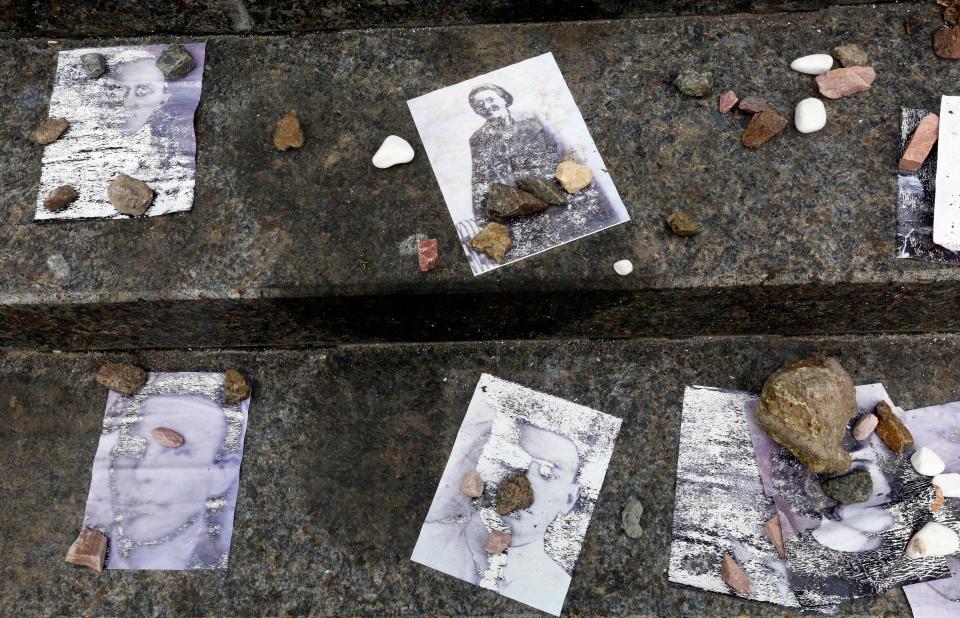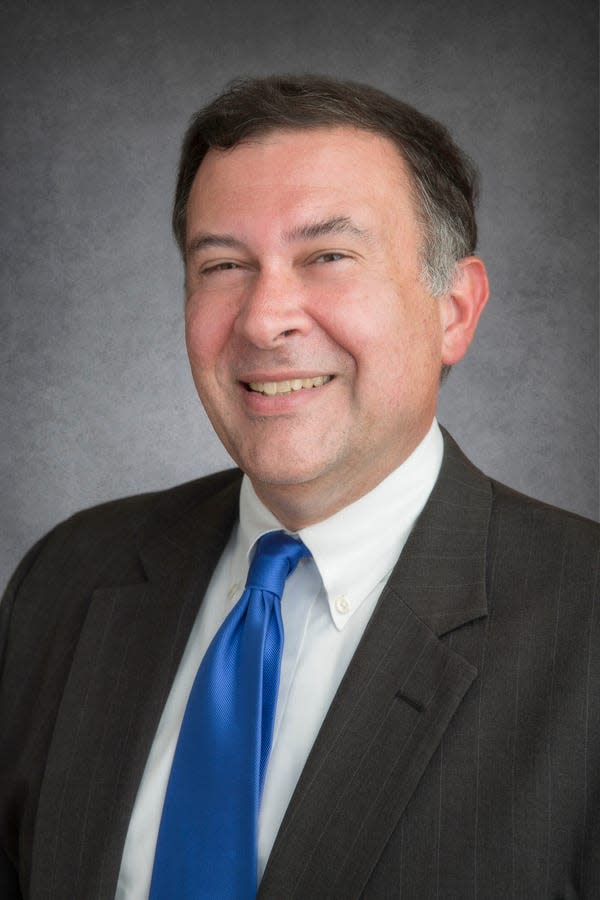The Holocaust, Ukraine and the promise of 'Never again' | Opinion
- Oops!Something went wrong.Please try again later.
International Holocaust Remembrance Week occurs every April. This year’s commemorations were like no other. The past’s proximity to the present sometimes seemed not so very far off and, in some ways, entirely too close at hand.
An infantryman
On April 26, Franklin buried 96-year-old Jimmy Gentry. A child of the Great Depression, he served as an infantryman in Europe during World War II. Some of what Jimmy saw during the war marked him for life. After the war, he began a 50-year-long career in high school teaching and coaching. Several generations of Middle Tennesseans knew him as the genial owner of Gentry's Farm, known for summer camps and its pumpkin patch.
For years, Jimmy did not speak of the unspeakable: what he saw on April 29, 1945, as he and other G.I.s liberated the Dachau concentration camp. In old age, Jimmy become a living reminder of the Nazis’ camps and their liberation. He shared his testimony with the Tennessee Holocaust Commission and the University of Tennessee's Center for the Study of War and Society. Jimmy’s memories of the horror he witnessed are now preserved for future generations. "I thank God for the life He has allowed me to have" is how Jimmy ended his autobiography, "An American Life." Those who saw Jimmy's energy, spirit and good humor at work for so many years thanked God that He had given us Jimmy for as long as we had him.

The same could be said of two others whose Holocaust testimonies were shared with a packed hall at Brentwood’s Congregation Micah on April 26. One was a war-crimes prosecutor; the other was a survivor of Nazi persecution.

Your state. Your stories. Support more reporting like this.
A subscription gives you unlimited access to stories across Tennessee that make a difference in your life and the lives of those around you. Click here to become a subscriber.
A war-crimes investigator
Harvard Law School-trained Benjamin Ferencz joined the Army’s war-crimes investigators in 1945. Much like Jimmy, Ben arrived early at the newly freed concentration camps, recording and securing as much evidence as possible. Among the document trove retrieved by Ben were the Wannsee Conference’s protocols: the 1941 meeting records in which the Nazis documented their plan for the “final solution of the Jewish question” — the extermination of Europe’s Jews.
Hear more Tennessee voices: Get the weekly opinion newsletter for insightful and thought-provoking columns.
Ben served as a prosecutor during the Nuremberg trials. Among those convicted was the SS officer — a lawyer in civilian life — responsible for the Babi Yar massacre in Ukraine. Now 102, Ferencz’s memories remain keen and sometimes even humorous. The next survivor’s graphic account brought home starkly the urgency of Ben Ferencz’s postwar tasks.
A survivor

Anda Rosen was 7 when the Nazis invaded Poland. Now 90, with her son’s help she recounted her childhood in a wartime Jewish ghetto in the then-Polish town of Sambor (now Ukraine) and how she heard the Nazis murder her parents and the ghetto’s other inhabitants while she and a group of other children hid.
Anda survived; almost all the rest of her family did not. Like Ben, she urged current and future generations to never forget the Holocaust and its cost. Anda can never forgive what was taken from her and her loved ones.
Ben Ferencz successfully prosecuted the Nazi perpetrator of the Babi Yar slaughter. Yet, only a few months ago, the Russians blasted that same Babi Yar, destroying its monument. Aged Holocaust survivors have been killed in Russian President Vladimir Putin’s onslaught. Yet amazingly, Germany has opened its doors to safeguard other Holocaust survivors. History does not always repeat itself exactly, even if often its echoes reverberate powerfully across the decades and years.
How do today’s generations face radical evil? Much the same evil that fueled the Holocaust seems at work in Putin’s Russia and in today’s new killing fields of Ukraine. Responding to radical evil with radical love — with warmth, support and care for our fellow human beings, whether Ukrainians, Uighurs, Rohingya and others facing oppression and genocide world wide — must be part of the solution. Standing up to and thwarting radical evil is also a moral and ethical duty.

THE LATEST NEWS RIGHT AT YOUR FINGERTIPS
Get the latest local news, sports scores and more directly on your phone. Download the free Knox News mobile app.
As to what current generations must do when we heard the clarion call of “Never again” but watch in real time as the ancient, bloody tenets of persecution, murder and genocide face our world once again, Anda Rosen urges: “As long as we are alive and have free will, we can fight the evil. We can choose. Teach your children history, so they can, and must, choose freedom.”
Jack H. (Nick) McCall is a Knoxville lawyer, writer and teacher. A former regular Army officer who served in Europe during the 1980s, he is the author of several books, including as co-author of "The East Tennessee Veterans Memorial" (UT Press 2020) with John Romeiser.
This article originally appeared on Knoxville News Sentinel: The Holocaust, Ukraine and the promise of 'Never again'

